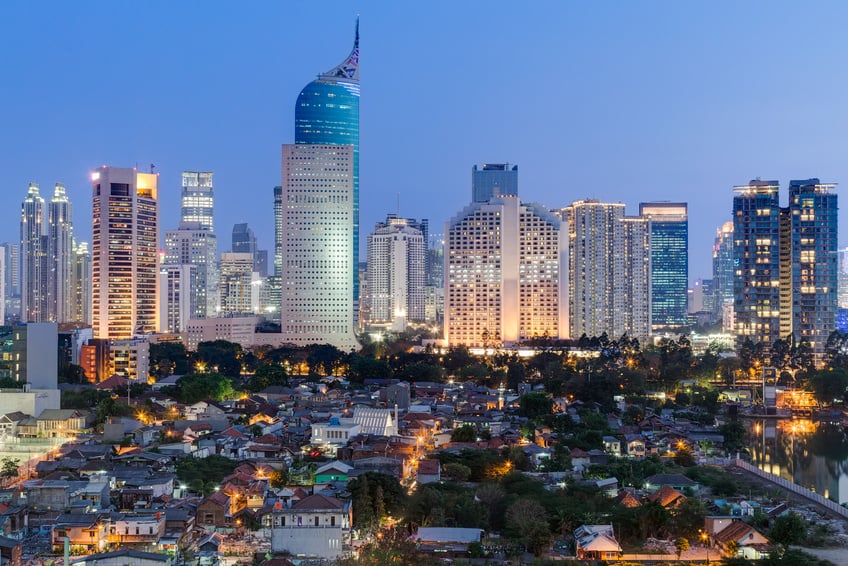Recent Developments
On 9 March 2020, the Financial Services Authority (“OJK”) issued Circular Letter No. 3/SEOJK.04/2020 on Other Conditions Constituting Significantly Fluctuating Market Conditions Allowing for Buyback of Shares (“SEOJK 3”), essentially allowing public companies to buy back their shares without prior approval of a GMS. This regulation implements OJK Rule No. 2/POJK.04/2013 on Buyback of Shares in Significantly Fluctuating Market Conditions (“POJK 2”).
The measure was taken as an effort to stimulate the economy and mitigate the impact arising from the current fluctuating market, which under SEOJK 3 is attributable to the impact of the coronavirus (COVID-19) outbreak on regional and global economies. That fluctuation is evident in the decline by 18.46% in the composite share price index (“IHSG”) of the Indonesia Stock Exchange (“IDX”) as of the issuance of SEOJK 3.
What SEOJK 3 Says
Expansion of Significantly Fluctuating Market Conditions
As a general rule, public companies may conduct buybacks of shares subject to the less stringent conditions under POJK 2 (compared to general buyback rules under OJK Rule No. 30/POJK.04/2017) if there is a “significantly fluctuating market condition”, which is defined as:
a. condition where the IHSG of the IDX experiences a cumulative drop of 15% or more within three consecutive exchange days; or
b. other conditions as stipulated by OJK.
To clarify the scope of “other conditions” as referred to in (b), SEOJK 3 explicitly lists the following as significantly fluctuating market conditions warranting share buybacks under POJK 2:
i. the growing concern over the impact of the coronavirus (COVID-19) outbreak on regional and global economies; and
ii. the decline by 18.46% in the IHSG of the IDX as of the issuance of SEOJK 3.
Relaxation of Share Buybacks Procedures
Echoing POJK 2, SEOJK 3 also stipulates that share buybacks can be performed by public companies without first holding a GMS. This will significantly reduce the time required to conduct a buyback (as it takes more than 40 days to conduct a GMS).
Further, SEOJK 3 permits public companies to buy back shares that represent up to 20 percent of their paid-up capital, provided that there must be at least 7.5% of free float.
In Brief: Procedure of Share Buybacks
Aside from the above changes, all public companies must continue to refer to the buyback procedure set out under POJK 2 as illustrated below.
Disclosure of Information
Before the buyback can be conducted, the relevant public company must submit certain information to OJK and the IDX no later than seven exchange days after the occurrence of the significantly fluctuating market condition (i.e., from 9 March 2020). The information must at least cover the following items:
(a) the estimated schedule, the costs of the buyback and the estimated total amount of nominal value of the treasury shares;
(b) the estimated decrease in the revenue of the company as a consequence of the buyback as well as its financial impact on the company;
(c) the proforma profit per share of the company after the execution of the buyback, taking into account the decrease of revenue;
(d) the limitation of share price for the buyback;
(e) the limitation of the buyback period;
(f) the method for the buyback (i.e., either outside or inside IDX); and
(g) a management discussion and analysis on the impact of the buyback on the company’s business and future growth.
Buyback Mechanism
If the buyback is conducted through the IDX, it must be conducted through a broker (which is a member of the IDX). Any insider of the public company is prohibited from trading shares of the company (a) in the period in which the company conducts the buyback or (b) on the day that the treasury shares are sold by the company through the IDX.
When Can the Process of Buybacks Begin?
Immediately after submitting the disclosure of information to OJK and the IDX, the public company can start the buyback. The buyback can only be conducted within three months after the date of the disclosure of information.
Sale of the Treasury Shares
In regard to timeline, if a public company still holds the shares resulting from their buyback process three years after the completion of the buyback, the treasury shares must be sold within two years from the end of the third year.



